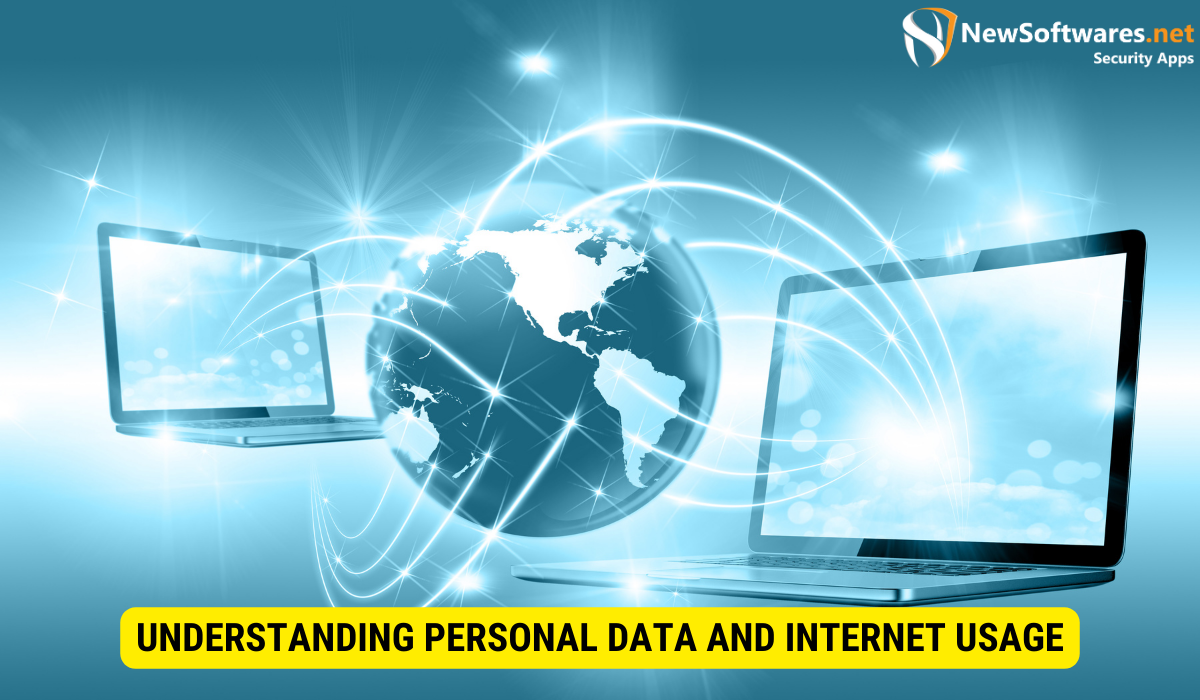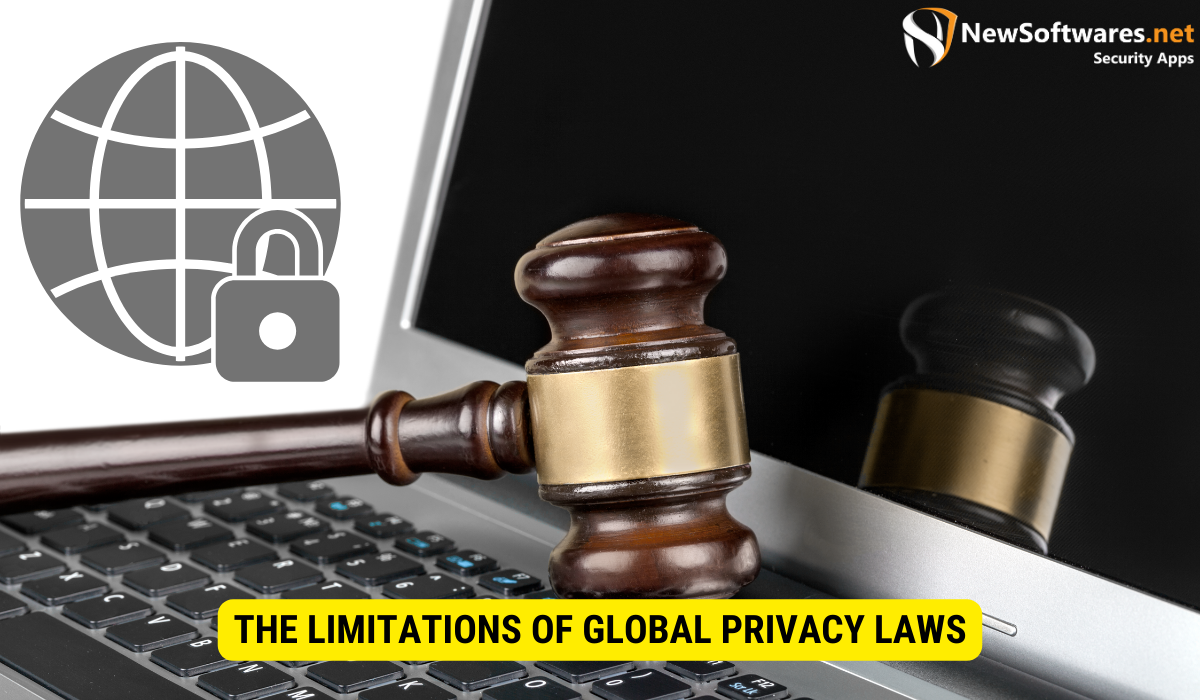Yes, there are global privacy laws that protect your personal data when using the internet. These laws regulate the collection, use, and disclosure of personal information, empowering individuals with rights and protections.
In today’s digital age, personal data is collected, stored, and shared by various entities on the internet. This raises concerns about the protection of our privacy and the security of our personal information. So, are there global privacy laws in place that safeguard our personal data? Let’s delve into the intricacies of this issue.
Understanding Personal Data and Internet Usage

What Constitutes Personal Data?
Personal data refers to any information that can directly or indirectly identify an individual. This includes names, addresses, email addresses, social media posts, banking details, and IP addresses. With the vast amount of personal data being generated daily, it is crucial to understand how it is utilized.
Regarding personal data, it is important to recognize that it goes beyond just the basic information we provide when signing up for an online service. It also includes the data collected through our online activities, such as the web site we visit, the products we purchase, and the content we engage with. Companies often use this data to create detailed profiles of individuals, allowing them to target specific advertisements and offers.
Furthermore, personal data can also encompass sensitive information such as medical records, sexual orientation, religious beliefs, and political affiliations. This data type requires even greater protection due to its potential for misuse and discrimination.
How the Internet Uses Personal Data
The internet relies heavily on personal data for various purposes. Online platforms and businesses often use personal data to tailor advertisements, improve user experience, and personalize content. However, the unauthorized or mishandled use of personal data can pose serious risks to individuals’ privacy and security.
Your personal data is constantly collected and analyzed when you browse the internet. This data is then used to create targeted advertisements more likely to catch your attention. For example, if you frequently search for travel destinations, you may see ads for discounted flights and hotel deals.
Additionally, personal data is also used to enhance user experience. Websites and online services use your data to remember your preferences, such as your linguistic settings, shopping cart items, and recently viewed products. This allows for a more personalized and efficient browsing experience.
However, knowing the potential risks of using personal data is important. Data breaches and unauthorized access can lead to identity theft, economic fraud, and other forms of cybercrime. Individuals and organizations must take preventive measures to protect personal data and ensure its responsible use.
Furthermore, the collection and use of personal data have raised concerns about privacy and consent. Many individuals are unaware of the extent to which their data is being collected and used and may not have given explicit consent for its use. This has led to increased calls for transparency and stronger data protection regulations.
In conclusion, personal data plays a significant role in the functioning of the internet. Individuals must understand what constitutes personal data and how it is used. By being informed and taking necessary precautions, we can navigate the digital landscape more safely and protect our privacy and security.
The Concept of Global Privacy Laws
The concept of global privacy laws has emerged as a response to the rising concerns over protecting personal data in an increasingly interconnected world. With the rapid advancement of technology and the proliferation of digital platforms, the need for comprehensive privacy regulations has become more pressing than ever before.
Privacy laws are designed to regulate the collection, use, and disclosure of personal data. Their primary aim is to protect individuals’ privacy rights, ensuring their personal information is handled responsibly and securely. By establishing a legal framework for data protection, these laws seek to balance the benefits of data-driven innovation and the preservation of individual privacy.
The Purpose of Privacy Laws
Privacy laws serve several important purposes. Firstly, they provide individuals with control over their personal information. By setting clear guidelines on how personal data can be collected, used, and shared, these laws empower individuals to make informed decisions about using their data.
Secondly, privacy laws promote transparency and accountability. Organizations that collect and process personal data must be transparent about their data practices and provide individuals with clear information about how their data will be used. This helps to build confidence between individuals and organizations, fostering a more transparent and responsible data ecosystem.
Furthermore, privacy laws aim to prevent the misuse of personal data. They establish safeguards and restrictions on handling sensitive information, such as medical records or economic data, to ensure that such data is not misused or exploited for malicious purposes.
Lastly, privacy laws play a crucial role in facilitating cross-border data transfers. In an interconnected world, where data flows across borders, it is essential to have harmonized privacy regulations that enable seamless data transfer while ensuring that individuals’ privacy rights are protected.
The Scope of Global Privacy Laws
Global privacy laws vary in scope and applicability. Some laws focus on specific industries or regions, while others, like the European Union’s General Data Protection Regulation (GDPR), have a wider reach. The responsibility lies with organizations operating in multiple jurisdictions to comply with the relevant laws that apply to their operations.
For instance, the GDPR, which came into effect in May 2018, applies to all organizations that process the personal data of individuals within the European Union, regardless of where the organization is located. This extraterritorial reach of the GDPR has significantly impacted businesses worldwide, as they have had to adapt their data processing practices to comply with the regulation.
Countries like Brazil, Japan, and South Korea have also implemented comprehensive privacy laws that align with international standards. These laws protect individuals’ secrecy rights and ensure that organizations handle personal data responsibly and securely.
It is worth noting that the scope and applicability of global privacy laws are continuously evolving. As technology advances and new data protection challenges emerge, policymakers and regulators worldwide are working to update and strengthen privacy regulations to keep pace with the changing data privacy landscape.
Key Global Privacy Laws in Place
General Data Protection Regulation (GDPR)
The GDPR, implemented in May 2018, is considered one of the most comprehensive and far-reaching privacy laws globally. It applies to all organizations that process the personal data of individuals within the EU, regardless of wherever the organization is located. The GDPR grants individuals various rights, including the right to entree and rectify their personal data, the right to be forgotten, and the right to data portability.
California Consumer Privacy Act (CCPA)
The CCPA, which occurred on January 1, 2020, is a landmark privacy law in the United States. It grants consumers specific rights over their personal data, such as the right to know what information is being collected and how it is used, the right to opt out of the sale of their data, and the right to request the deletion of their data. The CCPA applies to commerce that meet certain criteria and handle the personal data of California residents.
The Protection Offered by These Laws
Rights and Protections Under GDPR
The GDPR provides individuals with a variety of rights and protections. These include the right to transparency, meaning individuals must be provided with clear and concise information about how their data is being processed. Additionally, they have the right to be notified in the event of a data breach and the right to file protests with data protection authorities.
Rights and Protections Under CCPA
The CCPA empowers consumers to exercise control over their personal information. It enables individuals to demand that businesses disclose the categories of personal data collected, the purposes for which it is used, and the types of third parties with whom it is shared. It also allows consumers to opt out of having their data sold.
The Limitations of Global Privacy Laws

Jurisdictional Challenges
One of the significant challenges in enforcing global privacy laws is jurisdiction. The internet transcends borders, making holding organizations accountable for data breaches or privacy violations difficult. Jurisdictional conflicts arise when personal data is processed in one jurisdiction but affects individuals in another.
Enforcement Issues
Another limitation is the enforcement of privacy laws. Despite the existence of robust legislation, enforcement can be challenging due to limited resources and varying levels of commitment from different jurisdictions. Additionally, the ever-evolving nature of technology creates new challenges for regulators to keep pace with emerging threats.
Key Takeaways
- Personal data refers to any information that can directly or indirectly identify an individual.
- The internet relies on personal data for various purposes but must handle it responsibly and securely.
- Global secrecy laws, such as the GDPR and CCPA, regulate the collection, use, and disclosure of personal data.
- The GDPR applies to organizations processing the personal data of individuals within the EU, while the CCPA applies to businesses in California handling personal data.
- Privacy laws provide individuals with rights and protections, including transparency, control over their data, and the right to file complaints.
- Jurisdictional challenges and enforcement issues limit the efficacy of global privacy laws.
FAQs
Are global privacy laws applicable outside their jurisdictions?
Most global privacy laws apply extraterritorially, meaning they can still apply even if the organization processing the data is outside the jurisdiction. For example, the GDPR applies to organizations processing personal data of individuals within the EU, regardless of the organization’s location.
Are there penalties for non-compliance with global privacy laws?
Yes, there are penalties for non-compliance. Organizations that fail to comply with global privacy laws may be subject to fines, reputational damage, or legal action. The severity of penalties varies depending on the specific law and jurisdiction.
How can individuals protect their personal data?
Individuals can protect their personal data by practicing good online hygiene. This can include using strong, unique passwords, enabling two-factor authentication, being cautious when sharing personal information online, and regularly reviewing privacy settings on social media platforms and other online services.
Can organizations transfer personal data across jurisdictions?
Yes, organizations can transfer personal data across jurisdictions, but they must ensure that the data transfer is done by relevant data protection regulations. The GDPR, for example, imposes restrictions on transferring personal data to third countries that do not offer adequate data protection.
Are there additional privacy laws in other countries?
Yes, besides the GDPR and CCPA, many countries have their own privacy laws. Some notable examples include the Personal Data Protection Act (PDPA) in Singapore, the Privacy Act in Australia, and the Personal Information Protection and Electronic Documents Act (PIPEDA) in Canada. These laws protect personal data and privacy rights within their respective jurisdictions.
Conclusion
In conclusion, global privacy laws, such as the GDPR and CCPA, play a crucial role in safeguarding personal data left behind when using the internet. These laws provide individuals with rights and protections, curbing unauthorized use and providing them with a level of control over their personal information. However, challenges such as jurisdictional conflicts and enforcement issues must be addressed to further strengthen these laws’ effectiveness.
